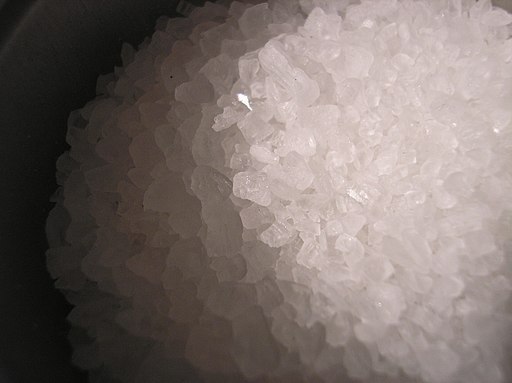
Ah, salt! We’ve had a love-hate relationship with it for decades. We crave it endlessly. It’s so hard to resist! We love it so much that we don’t even notice when copious amounts are unnecessarily added to our foods to make it taste better.
Yet we also know that salt is a killer. Too much salt raises blood pressure, contributes to kidney disease and osteoporosis, and increases water retention, causing weight gain. So, we go easy on the potato chips, we avoid the salted nuts, and we keep the salt shaker as far away from the dinner table as possible.
But what if salt isn’t so bad for us, after all? New research suggests that our previous understanding of salt was mistaken, and that rather than causing us to gain weight, it may actually stimulate weight loss.
As you may have learned in your human physiology class, salt and potassium must be kept properly balanced in your bloodstream. If you eat too much salt, you’ll soon feel a corresponding urge to drink more fluids so that the excess sodium is diluted, and the delicate equilibrium between sodium and potassium in your body is maintained. Naturally, the extra fluids you drink will cause you to urinate more frequently, thus removing the extra salt from your body. Or so the theory goes.
New research on Russian cosmonauts has shown that this theory may now be faulty. In a new study published in the Journal of Clinical Investigation, these Russian cosmonauts followed three different diets, each for 28 days. The first was a high salt diet, followed by a moderate salt diet, and finally a reduced salt diet. Other than the changes in salt intake, the rest of the diet was exactly the same, including the total calorie count.
Surprisingly, when eating high salt diet, the cosmonauts did not feel a corresponding urge to drink more fluids. In fact, the saltier their diet, the less fluid they drank, even while their urinary output continued to increase. The researchers were confused. Where was the extra fluid coming from? On the high salt diet, the cosmonauts also reported feeling more hunger, despite getting the same amount of calories as on the other two diets.
Urine samples showed an increase in glucocorticoids, known to raise metabolism, among other things. It appears that as the amount of sodium in their diet increased, increased glucocorticoid production resulted in the breakdown of their fat and muscle to free extra water for their bodies to use. In short, the high salt diet caused them burn more calories, and lose weight. In repeat studies done on mice, a high salt diet required the mice to eat 25% more food just to maintain their current body weight.
Before you rush over to the cupboard to binge on the saltiest food you can find, consider what kind of weight was being lost on the high salt diet. Primarily, it was muscle mass. As eager as you may be to lose weight, I think we can all agree that muscle mass is not something we’d like to lose. Additionally, high glucocorticoid production is linked to an increased risk of stroke and cardiovascular disease, so while it may work, this particular method of weight loss is not a very healthy one. Scientists also noted that this breakdown in muscle mass is exactly what happens when your body enters starvation mode.
So, I think we’ll continue to keep the salt shaker at a distance for now. The findings in this study were so unexpected, so revolutionary, that even the scientists aren’t sure what to recommend. It is a good reminder to keep investigating, always. In recent years, all sorts of dietary theories seem to have fallen by the wayside. In the end, I think the best maxim is still the oldest one: “everything in moderation; nothing to excess”.
About the Author: Rebecca Wong has a BA in English Literature from the University of Waterloo and has been working in the herbal business since 2000. She studied at the Ontario College of Traditional Chinese Medicine under respected authorities Paul Des Rosiers and Vu Le, and graduated from the East West School of Planetary Herbology under Michael Tierra. She received training as a yoga teacher at The Branches in Kitchener/Waterloo, and therapeutic yoga teacher training from the School for Somatic Soulwork under Deniz Aydoslu. She now teaches yoga for anxiety, depression and burnout at Rebecca's Restful Yoga Studio in Toronto.
